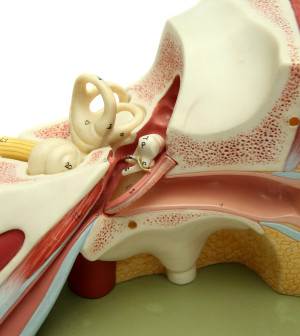- Could Your Grocery Store Meat Be Causing Recurring UTIs?
- Are You Making This Expensive Thermostat Error This Winter?
- Recognizing the Signs of Hypothyroidism
- 10 Strategies to Overcome Insomnia
- Could Artificial Sweeteners Be Aging the Brain Faster?
- Techniques for Soothing Your Nervous System
- Does the Water in Your House Smell Funny? Here’s Why
- Can a Daily Dose of Apple Cider Vinegar Actually Aid Weight Loss?
- 6 Health Beverages That Can Actually Spike Your Blood Sugar
- Treatment Options for Social Anxiety Disorder
Healthy Diet May Be Key to Kids’ Reading Skills

Healthy eating may offer young children an unexpected benefit — it might help them become better readers, a new study suggests.
Researchers in Finland found students’ reading skills improved more between first grade and third grade if they didn’t eat a lot of sugary foods or red meat, and if their diet consisted mainly of vegetables, berries and other fruits, as well as fish, whole grains and unsaturated fats.
The study included 161 Finnish students. They were between the ages of 6 and 8 (first grade to third grade). The researchers reviewed the children’s diets and their reading ability using food diaries and standardized reading tests.
A healthier diet was associated with better reading skills by third grade, regardless of how well the students could read in first grade, the researchers said.
“Another significant observation is that the associations of diet quality with reading skills were also independent of many confounding factors, such as socioeconomic status, physical activity, body adiposity [fat] and physical fitness,” study author Eero Haapala said in a University of Eastern Finland news release. He is a postdoctoral researcher at the University of Eastern Finland and the University of Jyvaskyla.
Does that mean parents of picky eaters should be concerned about their child’s reading abilities? Not necessarily. Although this study found an association between the foods young children ate and their reading skills, it didn’t prove cause-and-effect.
Still, the study’s authors said parents, schools, governments and corporations all have an opportunity to enhance academic performance in schools by making healthy foods more available to children.
The study was published recently in the European Journal of Nutrition.
More information
The U.S. Centers for Disease Control and Prevention provides more information on the link between health and school performance.
Source: HealthDay
Copyright © 2026 HealthDay. All rights reserved.










